Our History
Proudly shaping the narrative of the paper industry for over a century.
A legacy marked by resilience, innovation and family dedication.
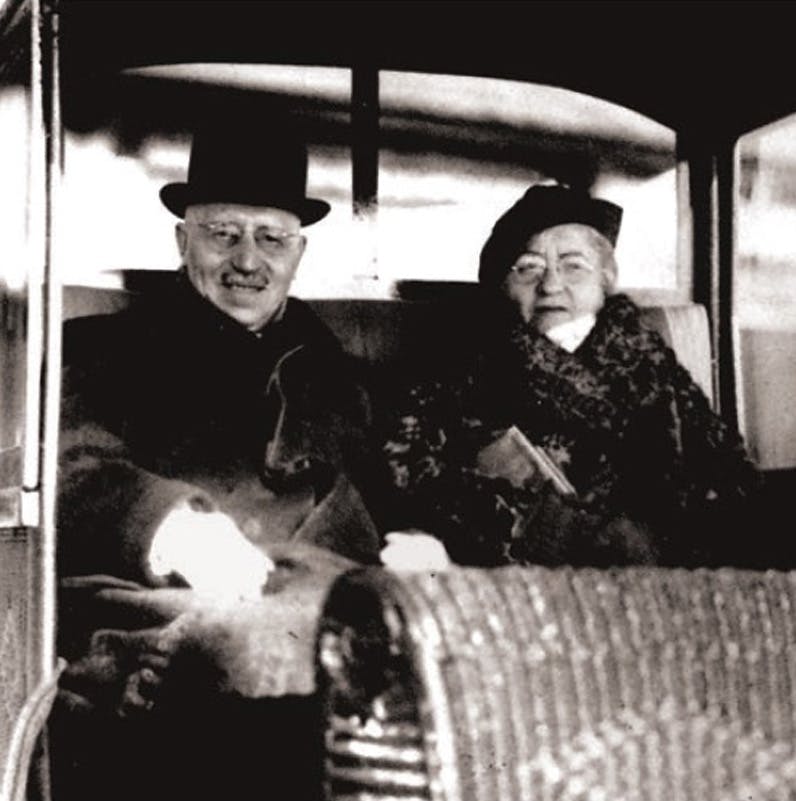
The beginning
1904
Our story begins in 1904, in Philadelphia, Pennsylvania. Emigrating from Austria, our founder David Newman, came to Philadelphia in search of opportunities. He followed in the footsteps of many Jewish-American immigrants, working as a local scrap dealer.
Using a horse and wagon, David collected and sold various forms of recyclable material including rags, scrap metal and discarded paper. He grew the business on the scrap paper side rather quickly, cultivating a strong customer base by selling paper stock to local mills.
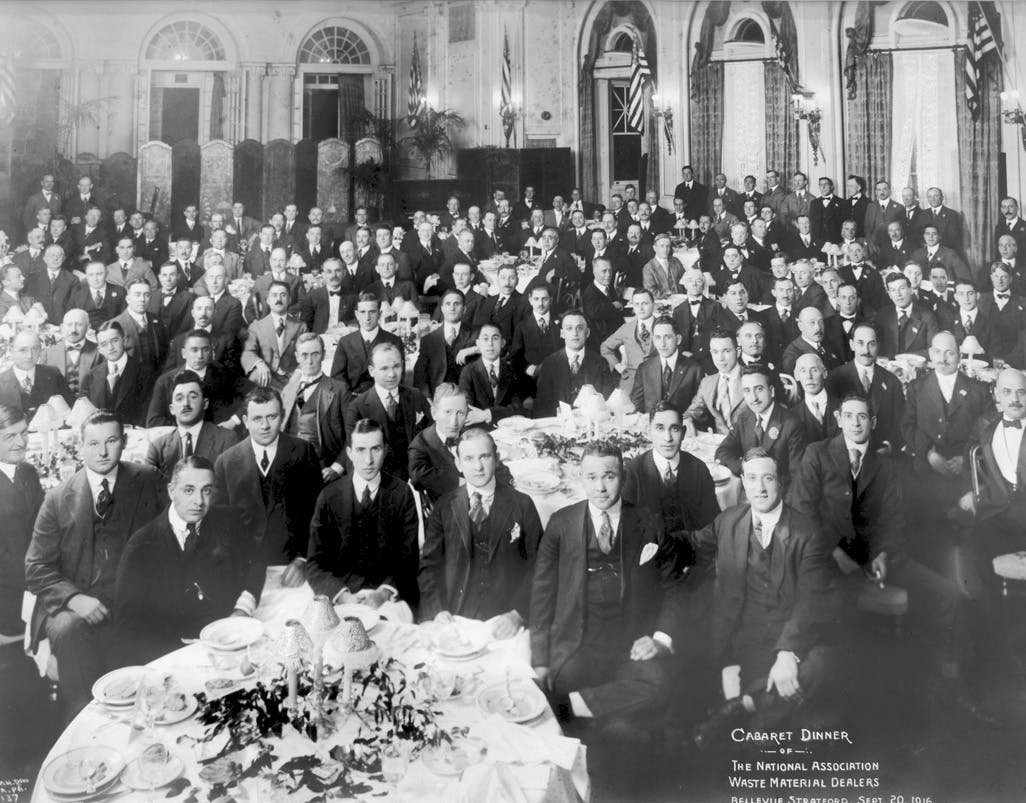
Phil-FIbre Box Board Mill
1918
Some years later, during the midst of World War I, David was approached by a group of box makers who were no longer able to obtain a steady supply of cardboard from the local mills. David felt encouraged to pursue a new business venture and decided to build a mill dedicated to manufacturing recycled paperboard.
Together with the help of family and friends, David bought a used paper machine and began construction in an old tin mill along the Delaware River in South Philadelphia.
By 1918, the Phil-Fibre Box Board Mill opened its doors, becoming a family venture with David’s four children: Esther Solodar, Isadore Newman, Milton Newman, and Louis Newman.
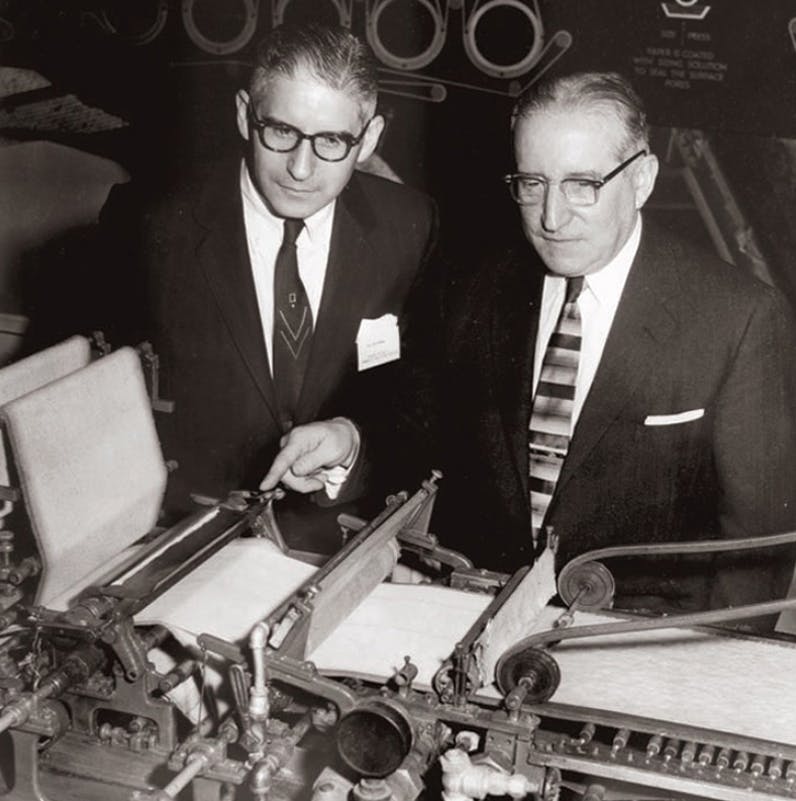
Weathering the Storm
1929 – 1940
The mill ran well until the Great Depression, when the paper business, like everything else, was hit hard. So hard, in fact that the company went into receivership in 1929.
Luckily, rescue came in the form of a paper distributor who did business with the firm. He lent the money to keep the business going, which David Newman paid off in three years. By 1940, David Newman had sold the mill, passing soon after in 1943.
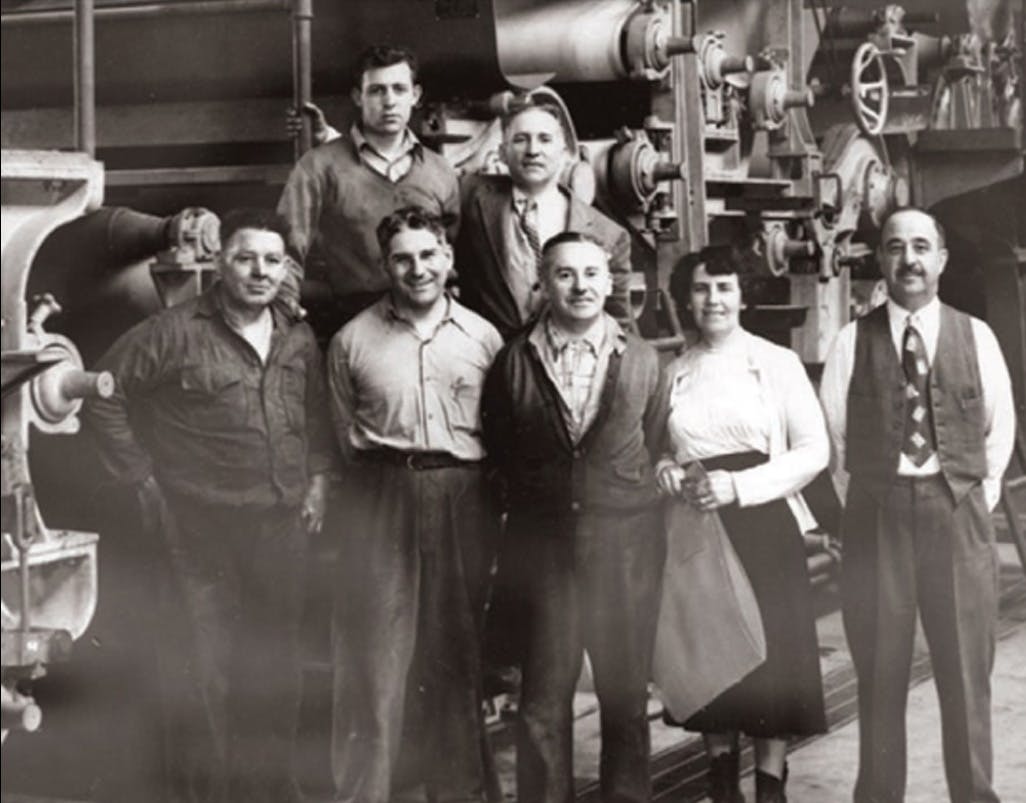
Newman & Company Resurgence
1952
The four children yearned to get back into the business. They tried trading pulp and even got into the mounting business for display advertising.
Around late 1949, the siblings would go on to carry out their father’s legacy, eventually buying a parcel of land farther north along the Delaware River, in the Tacony section of Northeast Philadelphia. They reclaimed wetlands, designed and built a paper mill, and opened for business in 1952 as Newman & Company.
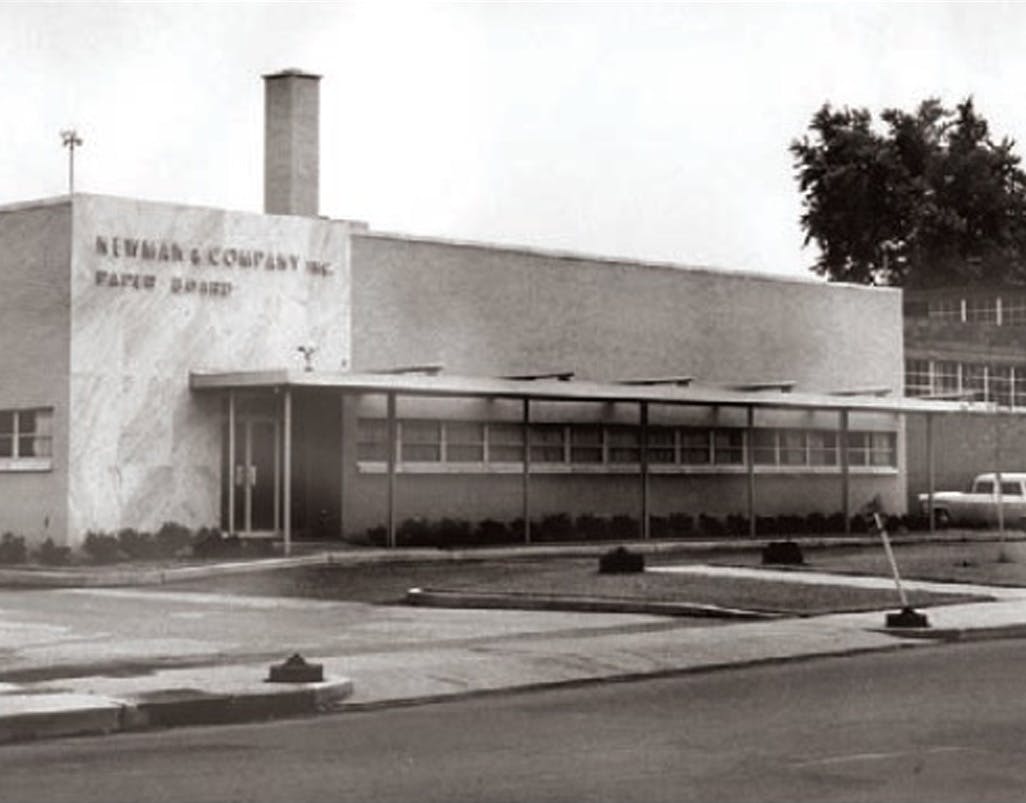
Transition to the Next Generation
1950s – 1960s
During the 1950’s and 1960’s, the third generation included Bud Newman, his brother-in-law Nate Ferman, and two cousins Sheldon Solodar and Mervin Newman- who together continued to oversee the Company.
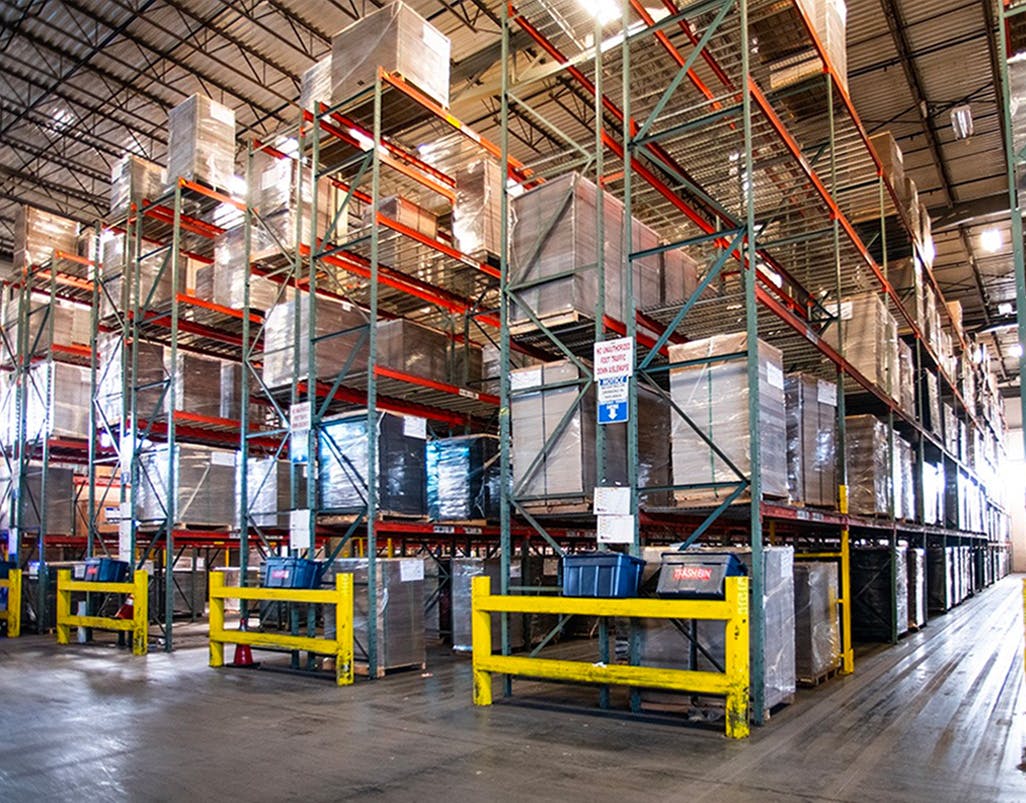
Generational Collaboration
1960s – 2000s
Over four decades, the Newman and Ferman families worked tirelessly, expanding the business, acquiring adjacent land, and establishing affiliate companies – Mill Corporation, United States Recycling, and Bridgeview Paper.
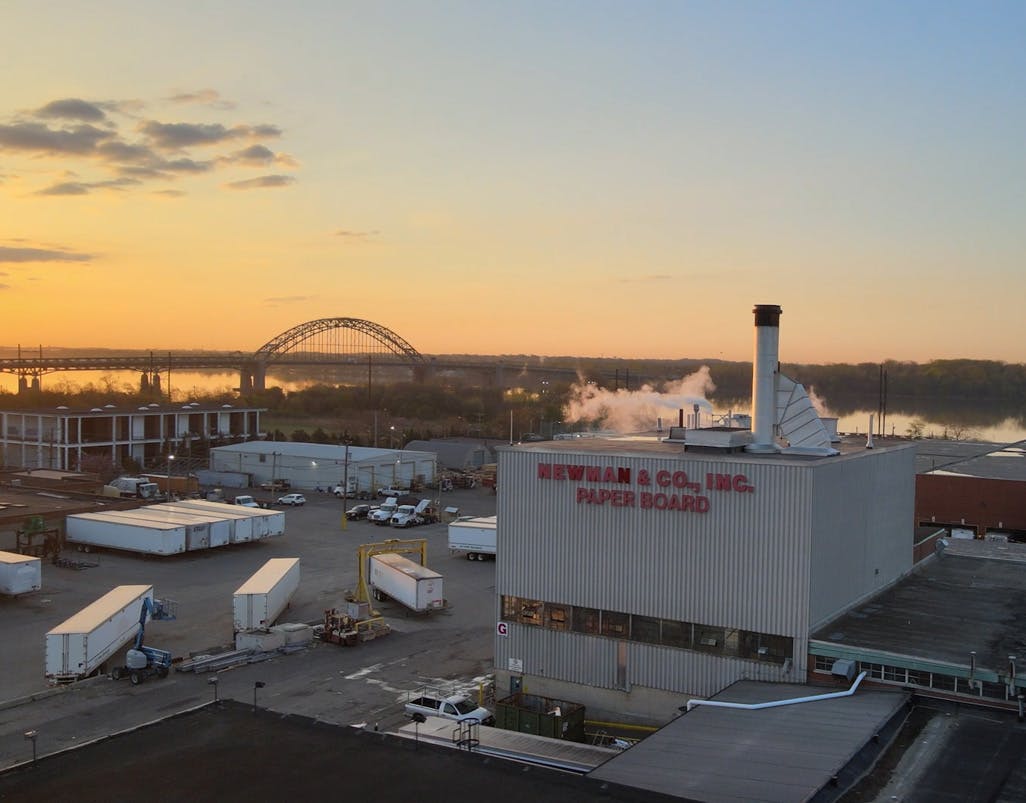
Legacy Continues
2000s – Present
Currently, the fourth and fifth generations of the Newman-Ferman families are working together at the mill alongside their dedicated teams. We are incredibly proud of our legacy, spanning over a century, across generations of papermaking families, each witness to the innovation that has transformed our industry through the decades.

The beginning
1904
Our story begins in 1904, in Philadelphia, Pennsylvania. Emigrating from Austria, our founder David Newman, came to Philadelphia in search of opportunities. He followed in the footsteps of many Jewish-American immigrants, working as a local scrap dealer.
Using a horse and wagon, David collected and sold various forms of recyclable material including rags, scrap metal and discarded paper. He grew the business on the scrap paper side rather quickly, cultivating a strong customer base by selling paper stock to local mills.

Phil-FIbre Box Board Mill
1918
Some years later, during the midst of World War I, David was approached by a group of box makers who were no longer able to obtain a steady supply of cardboard from the local mills. David felt encouraged to pursue a new business venture and decided to build a mill dedicated to manufacturing recycled paperboard.
Together with the help of family and friends, David bought a used paper machine and began construction in an old tin mill along the Delaware River in South Philadelphia.
By 1918, the Phil-Fibre Box Board Mill opened its doors, becoming a family venture with David’s four children: Esther Solodar, Isadore Newman, Milton Newman, and Louis Newman.

Weathering the Storm
1929 – 1940
The mill ran well until the Great Depression, when the paper business, like everything else, was hit hard. So hard, in fact that the company went into receivership in 1929.
Luckily, rescue came in the form of a paper distributor who did business with the firm. He lent the money to keep the business going, which David Newman paid off in three years. By 1940, David Newman had sold the mill, passing soon after in 1943.

Newman & Company Resurgence
1952
The four children yearned to get back into the business. They tried trading pulp and even got into the mounting business for display advertising.
Around late 1949, the siblings would go on to carry out their father’s legacy, eventually buying a parcel of land farther north along the Delaware River, in the Tacony section of Northeast Philadelphia. They reclaimed wetlands, designed and built a paper mill, and opened for business in 1952 as Newman & Company.

Transition to the Next Generation
1950s – 1960s
During the 1950’s and 1960’s, the third generation included Bud Newman, his brother-in-law Nate Ferman, and two cousins Sheldon Solodar and Mervin Newman- who together continued to oversee the Company.

Generational Collaboration
1960s – 2000s
Over four decades, the Newman and Ferman families worked tirelessly, expanding the business, acquiring adjacent land, and establishing affiliate companies – Mill Corporation, United States Recycling, and Bridgeview Paper.

Legacy Continues
2000s – Present
Currently, the fourth and fifth generations of the Newman-Ferman families are working together at the mill alongside their dedicated teams. We are incredibly proud of our legacy, spanning over a century, across generations of papermaking families, each witness to the innovation that has transformed our industry through the decades.